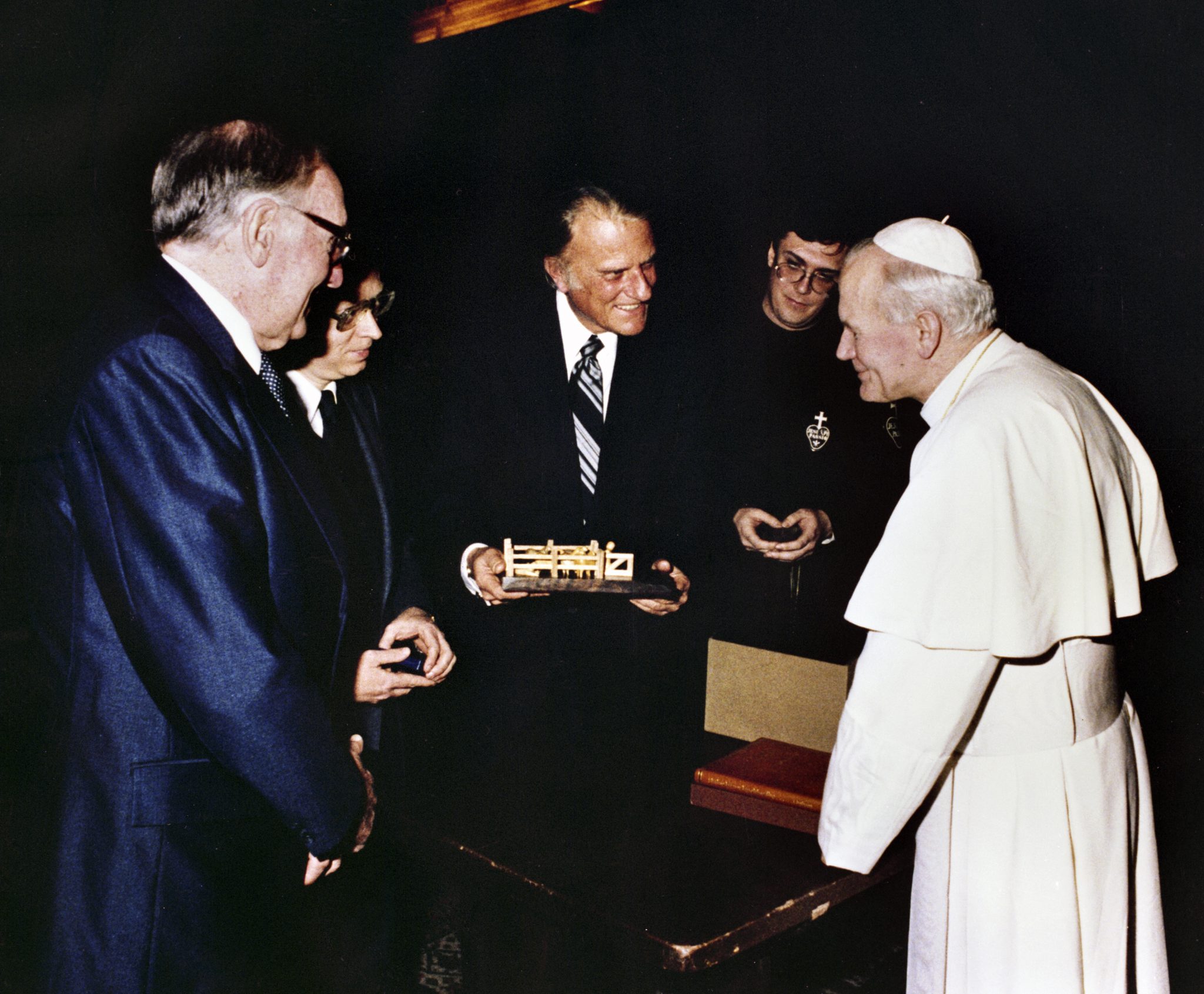Vs. “TurretinFan”: Including Some “Reminiscing” About Past Interactions with the Major Anti-Catholic Apologists Online

TurretinFan, a rather eccentric anti-Catholic Calvinist, stopped responding to me in 2010, jumping on the bandwagon with several other anti-Catholics who had previously been vigorously replying to my materials at great length (notably, Bishop “Dr.” [???] James White, James Swan, the late Steve Hays, and Jason Engwer). Eric Svendsen was another one, but he left the Internet for good in November 2005 and has remained true to his word. I guess all of them simply got tired of making fools of themselves and invariably losing debates with Catholics, including myself.
Now, it’s true that I had made a resolution in 2007 (not a “vow”: as these clowns all pretended took place, making a great deal of it) to stop debating anti-Catholics. Periodically, I make those decisions, based on prudential considerations of wise use of time. For example, I am no longer — for the foreseeable future — dealing with Catholics on the far right of the spectrum (radical Catholic reactionaries). I have done a ton of that in the past — including two books — and now I am writing about other things. There are a million topics to address in Catholic and general Christian apologetics. I’ve hit them all at one time or another, in my 5,000+ articles and 56 books. As a self-employed apologist and author, I decide what to write about (or do videos about) at any given time.
Some years later (after 2007), I started replying to anti-Catholics again, at least now and then (my patience permitting), including many many refutations of the articles of all these people. But they never responded anymore. Even when they did do so (before 2010) they rarely if ever made a reply past the first round. They would attempt one rebuttal, then I would counter-reply, and they would ignore that. This was especially the case with Bishop White, who has acted in that fashion ever since he fled in terror from our first debate-by-mail in 1995, leaving 36 (single-spaced typewritten) pages unanswered. He knew he had met his match.
I had done nothing, as regards a stated resolve to cease interaction, that Bishop White hadn’t already done. He wrote to me on 12 January 2001:
I have done all I could since then [our first “postal debate” from 1995] in light of certain aspects of your behavior to avoid interaction like the plague. My website contains nothing about you for that very reason. . . .
Mr. Armstrong, I have no interest, whatsoever, in continuing this with you. I don’t like you, and I don’t believe you like me. Until a few weeks ago I had followed the path of wisdom and avoided every entanglement with you. I erred in moving from that path. . . .
I’m going to ask you to join me in promising to stay as far away from each other as possible. I’m not asking you to not respond on your own website to what I write or doing whatever you want to do when speaking, etc. I am talking about personal interaction. Stay out of #prosapologian. Don’t write to me. Don’t ask to do dialogues, debates, or anything else. You just do your thing, and I’ll do mine. OK?
Of course the good bishop didn’t keep to his resolution, either. He kept making public replies and potshots and insults for seven more years, up until 2008, including lengthy multi-part supposed “rebuttals” of my books, The Catholic Verses (2004) and The One-Minute Apologist (2007). I would respond back and he would invariably ignore it. I wrote an entire book about him that he has completely ignored. But a search of my name on White’s Alpha & Omega blog, yields 130 results: some written there by his buddies James Swan and TurretinFan. That’s hardly “stay[ing] as far away” from me “as possible” or his blog “contain[ing] nothing about” me.
That was just a quick survey of some of what we Catholic apologists go through with anti-Catholic zealots, not even including their endless personal — and rather childish — insults. But it was often enjoyable, in-between the immense frustrations and absurdities. This article will also illustrate the futility of trying to deal with these anti-Catholic brain-dead pseudo-arguments. And it will almost certainly be ignored, too.
But it’s still good to expose falsehoods for what they are and to express and defend the truth; so I do it as opportunity arises. That’s why I am writing this article. Turretin is now active on YouTube, and I may start interacting with those videos if I feel it is worthwhile. TurretinFan is interacting with Catholic apologist William Albrecht. Whether he will with me again remains to be seen. He’d be the first of the big-name anti-Catholics to change his policy in that respect, if so. His choice. I keep defending truth, in any event.
*****
I am replying to TurretinFan’s very last reply to me on his blog, entitled, “Defining “Christian” so as to Deceive Christians” (6-9-10). His words will be in blue; my past words in green.
Over in the comment box of the GreenBaggins blog, Dave Armstrong asked:
First of all, how could one who accepts the Nicene and Apostles’ Creed not be a Christian? I think that is something you should ask yourself. If those do not help clarify who is and who is not a Christian, what in the world does? This is the very purpose of creeds and confessions: to determine in a concise manner who is within and outside of the fold.
One has to ask why, i.e. upon what pretense, Dave selects the creeds of those councils, and not the Tridentine creed?
That’s simple, and I think TurretinFan (a lawyer) could have figured it out with even sixty seconds of reflection. Protestants reject the authority of Trent, and indeed, the infallibility of all ecumenical councils (though many of them “respect” to a large degree the first seven). They don’t reject the early creeds; therefore, it’s a way that we can establish common ground with them, with regard to a definition of “Christian” that both sides can agree with.
But even Protestant belief in the Nicene Creed has to be qualified in at least one respect. It refers to “baptism for the forgiveness of sins” (baptismal regeneration), which most Protestants reject (Lutherans, Anglicans, some Methodists, Churches of Christ, and Disciples of Christ being the exceptions). With that exception, though, an orthodox Protestant could accept the Nicene Creed, and certainly the Apostles’ Creed with no reservations at all, since it doesn’t mention the controversial topic (for them) of baptism.
If TFan would actually respond to this, no doubt he would dispute what I just wrote and go round and round, offering the most ridiculous sophistical points, because that’s what he does (see my previous reply to him for a prime example of his modus operandi), and why I haven’t bothered interacting with him much through the years. His disordered thinking is evident in this very article of his, where he expresses the impossibility of agreeing on this rather simple matter.
If one is going to include “heretics” who do not accept the Tridentine creed, why not accept heretics who do not accept the Nicene creed? After all, from Rome’s perspective, both Arians (who reject Nicaea) and the Reformed (who reject Trent) are “outside the fold” in the same sense.
This is fallacious reasoning in two ways. First of all, Protestants are heretical in some respects but not so in many others, including those which are the basis for our concluding that they are fellow Christians in the Body of Christ. “Heresy” simply means not complying with some received doctrine, established in the Catholic Church long since. But it doesn’t necessarily exclude them from the category of Christianity altogether. Trent, Canon IV on baptism, states that “heretics” — if they baptize with a trinitarian formula — perform a “true baptism.” With that comes all of the baptismal graces that Catholics receive at baptism, including regeneration, entrance into the Body of Christ and the kingdom of God (i.e., into Christianity); indeed, even “incorporation into Christ” Himself.
Protestants do the same thing with each other. So, for example, a Calvinist like TFan would say that Lutherans are “heretical” when they accept doctrines that Calvinists deny: such as their denial of double predestination, or acceptance of the Real Presence in the Eucharist and baptismal regeneration; all the while not denying that they are fellow Protestants and therefore Christians. Lutherans return the favor when critiquing Calvinists. That’s all we’re saying with regard to Protestants.
TFan seems to think there is some analogy here between Protestants and Arians. This is not the case at all. Arians (Jehovah’s Witnesses, today) are Christological heretics who deny the Holy Trinity and Jesus’ divinity (they blasphemously think that He was created). Therefore, their baptism is invalid and in no way can they be considered Christians. That’s why I studied and opposed them in the early 80s as a Protestant evangelical “cult researcher”: my first major apologetics project. My work then is just as relevant and sound now and remains online on my blog.
Protestants are out of the “Catholic fold” but Jehovah’s Witnesses are outside of the much larger category of the “Christian fold.” It’s not “the same sense” as he claimed. TFan and Catholics like myself can both oppose them — “arm-in-arm” as it were — on the same grounds that we agree with: belief in the Holy Trinity and the deity of Christ, and doctrines like eternal hellfire, that they also deny.
I understand that there are Christians out there who like to use one of those creeds as being a true definition of what is involved in being a Christian. That’s because they think that the essential doctrines of the faith are captured in those creeds. That’s not Rome’s position – Rome doesn’t permit people to differ over what Trent has said: if you deny Trent, you can’t reasonably call yourself a Roman Catholic.
Yes, of course (to the last sentence). But you can call yourself a Christian. You can deny parts of Trent and still be a Christian, according to Trent itself, because “Christian” is a larger category: the group of people who adhere to the two creeds. They express what might be called “mere Christianity” (to use C. S. Lewis’ term). All Christians can come together and blissfully agree, to that extent.
For a Roman Catholic to select the Nicene Creed or the Apostles’ Creed as definitive of what it means to be a Christian is, at best, arbitrary.
Not at all, as explained. It’s perfectly coherent and consistent. And it’s because we believe trinitarian baptism is what causes one to enter into the covenant community; to become regenerated and a Christian. The Nicene Creed states this; the Apostles’ Creed probably implies it, in referring to “the forgiveness of sins.”
Trent and Nicaea are equally authoritative for a Romanist. Monothelitism (not condemned at Nicaea) is just dogmatically defined to be a heresy as Arianism. Iconoclasm is as strongly opposed as Monothelitism.
These are non sequiturs in terms of this particular dispute.
And Trent’s Canon IX on Justification defines Sola Fide to be as false as any other condemned teaching.
True, but sola fide is not the gospel. It’s merely one late-arriving slant on biblical soteriology. The leading (Protestant) historian of justification, Alister McGrath, called it a “theological novum” and Protestant theologian and apologist Norman Geisler stated that no one believed in it between Paul and Luther. Why should anyone believe something that took fifteen centuries to even show up? Trent was merely condemning a theological novelty / heresy that had been in existence only about 25 years before it condemned it.
TFan’s fundamental mistake here, of course, is thinking that sola fide is the gospel. It’s not; it’s not even biblical (as my 100 passages collected against it prove). we know what the gospel is because we have a record of the apostles preaching it immediately after Pentecost. St. Peter’s first sermon of the Christian age and new covenant (Acts 2:22-40) is certainly the gospel, especially since 3000 people became Christians upon hearing it (2:41)! In it he utters not a word about “faith alone.” He instructs the hearers, rather, to “repent, and be baptized . . . so that your sins may be forgiven” (2:38).
St. Paul defines the gospel in Acts 13:16-41 as the resurrection of Jesus (vss. 32-33), and in 1 Corinthians 15:1-8 as His death, burial, and resurrection. When Paul converted, straightaway he also got baptized, in order to have his “sins washed away” (baptismal regeneration again). Furthermore, when the rich young ruler asked Jesus how he could be saved (Lk 18:18-25), our Lord, accordingly, didn’t say “just believe in Me with faith alone.” No, He commanded him to perform a “work,” to sell all that he had. Jesus also rewards and grants salvation at least partially according to works and acts of charity, rather than on the basis of sola fide (Mt 16:27; 25:30-46 – note conjunction “for” in v. 35).
So then, the explicit scriptural proclamations and definitions of the gospel strikingly exclude “faith alone,” while other actions by Jesus and the apostles contradict it by force of example. The death, burial and resurrection of Jesus is the “good news,” not some technical soteriological theory. Even common sense would dictate that this “good news” is comprised of Jesus’ redemptive work for us: the great historical drama of His incarnation and atonement; not forensic, extrinsic, declared, imputed justification. How could a mere theological abstract reasonably be called “good news”?
I wish that anti-Catholic Protestants would define the gospel from the Bible alone (since that is supposedly the Protestant formal principle), as I have done. I define it straight from the Bible, whereas anti-Catholics want to define it according to a mere “tradition of men” (i.e., Melanchthon’s and Calvin’s). I find this quite tragi-comically ironic. Catholics and Protestants both hold to the gospel as biblically defined above. We differ on questions of justification, which is the application of salvation and the gospel and Jesus’ work to the individual, not the gospel itself. Nor is TULIP (Calvinism) the gospel, strictly speaking.
Unfortunately, a number of Christians fall for this sort of sophistry. They imagine that folks like Mr. Armstrong are recognizing them as true followers of Christ by calling them a Christian. . . . This confusion is exacerbated by the fact that there are many folks within the Roman Catholic Church who do actually think that non-RCs are just on different paths to heaven: RC members who essentially adopt pluralism. Those two groups read Vatican II’s comments “ecumenical” comments in radically different ways. And which group reads Vatican II correctly?
It’s only a tiny group of dissidents in the Catholic Church on the far right (quasi-schismatics) and far left (theological liberals) who reject Vatican II, just as the Old Catholics rejected Vatican I in 1870 (due to their dislike of papal infallibility) and left the Church, and basically ceased having any significance after that. TFan goes on and on about Catholic councils, seemingly forgetting that Vatican II is as authoritative as Trent, according to Catholicism. And it teaches repeatedly that Protestants are Christians:
Decree on Ecumenism (Unitatis Redintegratio, 21 November 1964) [my emphases]:
One CANNOT CHARGE WITH THE SIN OF SEPARATION those who at present are born into these communities and in them are brought up in the faith of Christ, and the Catholic Church accepts them with RESPECT and AFFECTION as BROTHERS. For men who believe in Christ and have been properly baptized are put in some, though imperfect, communion with the Catholic Church. (3)
all who have been justified by faith in baptism are INCORPORATED INTO CHRIST [footnote cites Council of Florence, Session 8, from the year 1439]; they therefore have a right to be called CHRISTIANS, and with good reason are accepted as BROTHERS by the children of the Catholic Church. (3)
Moreover, some, even very many, of the most significant elements and endowments which together go to build up and give life to the Church itself, can exist OUTSIDE the visible boundaries of the Catholic Church: the written Word of God; the life of grace; faith, hope and charity, with the other interior gifts of the Holy Spirit, as well as visible elements. ALL of these . . . COME FROM CHRIST and lead back to him . . . (3)
The brethren divided from us also carry out many liturgical actions of the Christian religion. In ways that vary according to the conditions of each Church or community, these liturgical actions most certainly can truly engender a LIFE OF GRACE, and, one must say, can aptly GIVE ACCESS TO THE COMMUNION OF SALVATION. (3)
the separated Churches and communions as such . . . have been by no means deprived of significance and IMPORTANCE IN THE MYSTERY OF SALVATION. For the Spirit of Christ has not refrained from using them as a MEANS OF SALVATION which derive their efficacy from the very fullness of grace and truth entrusted to the Catholic Church. (3)
Catholics must gladly acknowledge and esteem the TRULY CHRISTIAN ENDOWMENTS for our common heritage which are to be found among our separated brethren. It is right and salutary to recognize the RICHES OF CHRIST and virtuous works in the lives of others who are BEARING WITNESS TO CHRIST, sometimes even to the shedding of their blood. (4)
Nor should we forget that anything WROUGHT BY THE GRACE OF THE HOLY SPIRIT in the hearts of our separated brethren can CONTRIBUTE TO OUR OWN EDIFICATION. Whatever is TRULY CHRISTIAN is never contrary to what GENUINELY BELONGS TO THE FAITH; indeed, it can always bring a more perfect realization of the very mystery of Christ and the Church. (4)
For more along these lines, see:
How Catholics View Protestants [9-4-03; rev. 10-9-03 and 1-5-05; abridged on 11-14-16]
Dialogue: Definition of “Christian” (vs. Reformed Pastor) (+ Did Trent Anathematize all Protestants?) [6-5-10]
Anti-Catholics Are Catholics’ Brothers in Christ [4-18-02; reposted on 4-22-24]
Comments on the Question: “Are Protestants Heretics?” [2-2-07]
My Respect for Protestants / Catholic Ecumenical Principles [2001; addendum: 1-8-03]
Gratefulness for My Evangelical Protestant Background [3-18-08]
What I Like About Calvinism and Calvinists [June 2009]
The “Catholic-Sounding” Luther: 25 Examples [6-16-08]
50 “Catholic” John Calvin Views [3-18-10]
Ecumenism vs. No Salvation Outside of the Church? (vs. Dustin Buck Lattimore) [8-9-17]
Baptismal Ecumenism: A New Evangelistic Paradigm (Rod Bennett) [8-11-17]
Nor is even the term “separated brethren” a new thing from the 1960s, as seemingly most Protestants and many Catholics mistakenly think. Pope Leo XIII used it twice in official documents in 1895 and again in 1898. Pope St. Pius X referenced “dissident brothers” in 1910. Venerable Pope Pius XII used it twice in documents in papal encyclicals in 1939, and four more times in 1944. Etc., etc.
See: “Separated Brethren” Term Before Vatican II (1962-1965) [3-25-13]
Photo credit: Billy Graham giving Pope St. John Paul II a woodcarving of a shepherd and his sheep at their meeting in 1981. [The Billy Graham Library: “Billy Graham and Pope John Paul II” (August 31, 2021) ]
Summary: Exchange with anti-Catholic Calvinist “TurretinFan” about whether Catholics are equivocating and being inconsistent in their definition of the word “Christian.”











